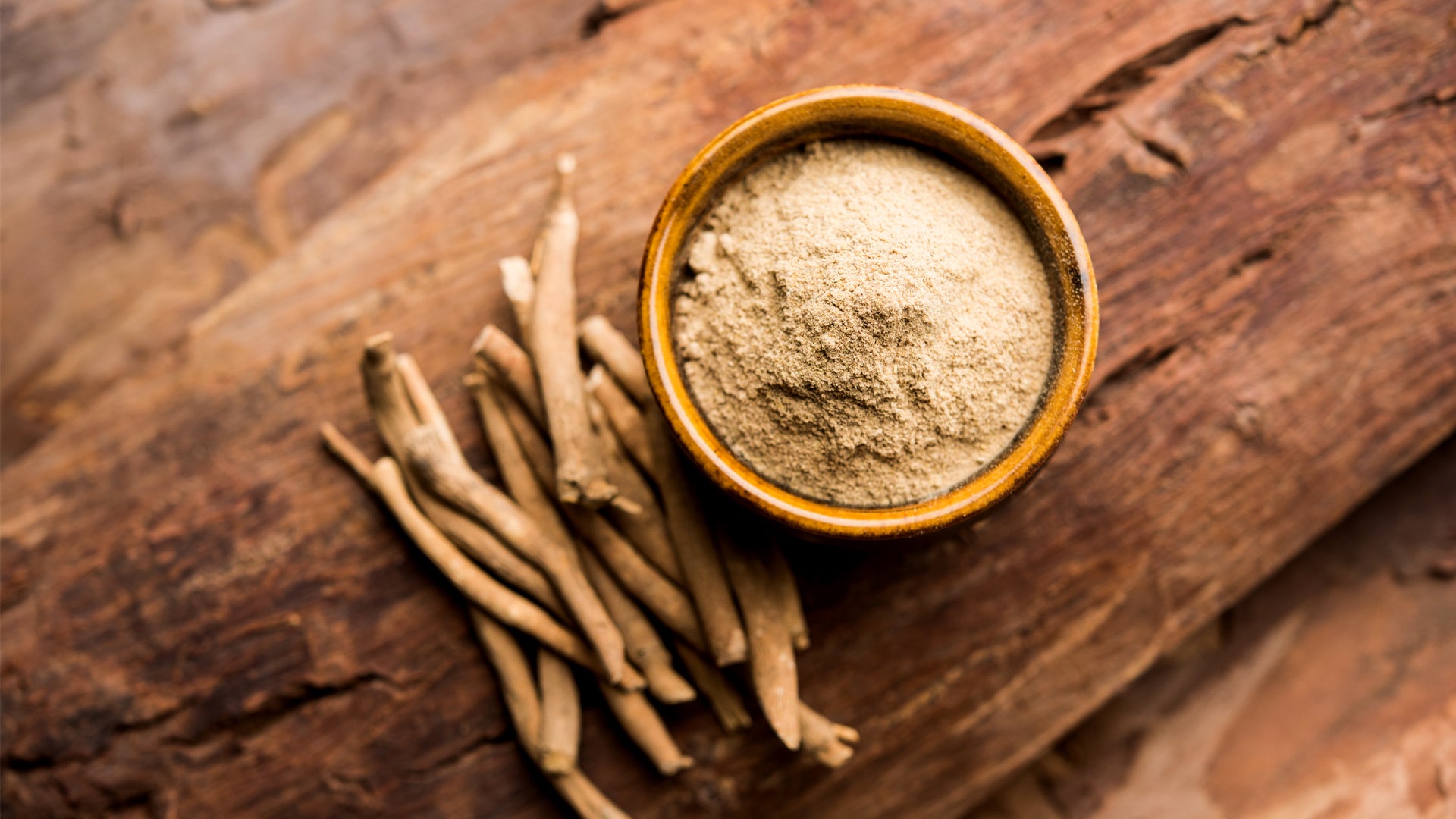
Benefits of Ashwagandha
Benefits of Ashwagandha
Ashwagandha (Withania somnifera) is a natural shrub grown in India, the Middle East, and parts of Africa. It is a medicinal herb and is part of traditional therapeutics for centuries. It has been beneficial in the treatment of anxiety, lack of sleep, healing, and exhaustion. It is enriched in antioxidants, amino acids, and iron.
Ashwagandha is one of the most effective herbs in Ayurvedic medicine. The literal meaning in Sanskrit is “Smell of a horse.” Traditionally, it is believed that a person, who consumes it, will get the power of a horse.
Benefits of Ashwagandha
Ashwagandha is one of the most important supplements in Ayurvedic medicine. It has been in use for about 3000 years.
The following are the benefits of Ashwagandha
Stress Management
Various studies have confirmed the anxiolytic (anxiety-reducing) effects. It reduces the level of cortisol, “the stress hormone.”
A study examined the effects of Ashwagandha on chronic stress management. A total of 64 patients were included after a pre-defined inclusion criterion. The stress factor was determined by inspecting the serum cortisol levels and stress-evaluation questionnaires.
These subjects were advised to take a capsule (300mg) of Ashwagandha daily for about 60 days. A follow up was carried out on 15th, 30th, and 45th day. The compliance of each subject and possible side effects were recorded.
The treatment receiving group showed marked improvement in stress reduction. The serum cortisol level was significantly low. No serious side effects were noted.
The finding of the study is consistent with the pre-narrated statement that Ashwagandha reduces stress.
Anti Cancer Properties
Ashwagandha stops the growth of new cancer cells. A study has investigated the effect of Ashwagandha in the induction of apoptosis. Apoptosis is programmed cell death and is a natural phenomenon.
A compound namely withaferin, found in Ashwagandha helps the formation of reactive oxygen species (ROS), which halts the function of cancer cells.
In a mice study, ovarian cancer showed a reduction in tumor growth factor when a combination of withaferin and anti-cancer drug was administered.
Blood Glucose Level Reduction
Blood glucose regulation is a key requirement in diabetes patients. Ashwagandha has shown its blood glucose reduction effects. It increases insulin production and enhances the sensitivity of muscle tissue for insulin.
Ashwagandha reduces the blood sugar in healthy, as well as, diabetic patients.
Effect on Testosterone Level and Male Fertility
Ashwagandha has shown a significant impact on testosterone and male fertility. Its use showed increased sperm count and raised testosterone levels.
Inflammation Reduction
Ashwagandha helps in reducing inflammation by enhancing the activity of natural killer cells. It also reduces the C-reactive protein (CRP), a key marker indicating underlined heart disease.
Decreased Triglycerides and Cholesterol
Ashwagandha reduces cholesterol and triglycerides. Animal’s studies have pointed towards this fact that this herb can reduce harmful fats and improves cardiac health.
A study has shown that it reduces cholesterol and triglycerides near to 50 %. A trial of 60 days of chronically stressed patients resulted in a 17 % lesser LDL and 11 % decrease in triglyceride.
Increased Memory- Improved Brain
Studies discussed the healing properties of Ashwagandha in problems caused by injury to the brain. It shields the harmful effects of oxidants by promoting its anti-oxidants properties.
Ashwagandha has been used for memory boosting in Ayurvedic medicine for centuries. Another study utilized 500 men, who daily took 300 mg of the drug. The result showed a marked improvement in daily tasks, memory, and attention.
Increase in Muscle Strength
Ashwagandha improves body composition and strength. A study has shown the safe dose of Ashwagandha for muscle gain. Men who used the Ashwagandha, showed improved muscle mass and strength.
Another study suggested that it also reduces fat rapidly and helped in gaining muscle mass.
Depression Management
Some studies suggest that there may be depression relieving properties of Ashwagandha. In a study of 64 persons, that took 600 mg of the drug for 60 days. A reduction of 79 % in depression was recorded.
More research is required to establish the relationship between Ashwagandha and depression.
Skin Care
Ashwagandha promotes the production of skin oil. It also helps in the production of important compounds and proteins for the health of the skin. It is also used as a toner with dried lemon and ginger.
Hair Loss Treatment
It is believed that Ashwagandha improves the blood circulation of the scalp and hair, and it destroys dandruff too. It induces the production of melanin so it may reduce the grey hair.
Treating the Insomnia
Ashwagandha is very useful in treating the insomnia. It relaxes the nervous system, loses stress, and eliminates sleeplessness. It has been used with honey and warm milk for calmness. It can also be mixed in a hot cup of tea before going to bed.
The Bottom Line
There is a never-ending list of the benefits of the Ashwagandha. It is a natural evergreen herb that is part of traditional Indian medicine.
It has various medicinal effects. These range from reduction of the stress, anti-cancer properties, decreasing blood glucose level, anti-hair fall, muscle gain, decreasing fat, and skincare properties. It also aids in gaining muscle mass. Moreover, it increases the sperm count and treats the male infertility.
Almost no side effects, with these bundles of medical benefits, make Ashwagandha a must-have supplement in your supplement collection.
Check out SunNutrient Ashwagandha with Black Pepper
References
1. Ashwagandha: It's Powerful Health and Beauty Benefits You Didn't Know About-https://food.ndtv.com/ayurveda/ashwagandha-the-powerful-health-benefits-and-beauty-benefits-you-need-to-know-1220328
2. Chandrasekhar, K et al. “A prospective, randomized double-blind, placebo-controlled study of safety and efficacy of a high-concentration full-spectrum extract of ashwagandha root in reducing stress and anxiety in adults.” Indian journal of psychological medicinevol. 34,3 (2012): 255-62. doi:10.4103/0253-7176.106022
3. Vyas AR, Singh SV. Molecular targets and mechanisms of cancer prevention and treatment by withaferin a, a naturally occurring steroidal lactone. AAPS J. 2014;16(1):1-10. doi:10.1208/s12248-013-9531-1
4. Kakar SS, Ratajczak MZ, Powell KS, et al. Withaferin a alone and in combination with cisplatin suppresses growth and metastasis of ovarian cancer by targeting putative cancer stem cells. PLoS One. 2014;9(9):e107596. Published 2014 Sep 29. doi:10.1371/journal.pone.0107596
5. Nishikawa Y, Okuzaki D, Fukushima K, et al. Withaferin A Induces Cell Death Selectively in Androgen-Independent Prostate Cancer Cells but Not in Normal Fibroblast Cells. PLoS One. 2015;10(7):e0134137. Published 2015 Jul 31. doi:10.1371/journal.pone.0134137
6. Gorelick J, Rosenberg R, Smotrich A, Hanuš L, Bernstein N. Hypoglycemic activity of withanolides and elicitated Withania somnifera. Phytochemistry. 2015;116:283-289. doi:10.1016/j.phytochem.2015.02.029
7. Mahdi AA, Shukla KK, Ahmad MK, et al. Withania somnifera Improves Semen Quality in Stress-Related Male Fertility [published online ahead of print, 2009 Sep 29]. Evid Based Complement Alternat Med. 2009;2011:576962. doi:10.1093/ecam/nep138
8. Bhat J, Damle A, Vaishnav PP, Albers R, Joshi M, Banerjee G. In vivo enhancement of natural killer cell activity through tea fortified with Ayurvedic herbs. Phytother Res. 2010;24(1):129-135. doi:10.1002/ptr.2889
9. Visavadiya NP, Narasimhacharya AV. Hypocholesteremic and antioxidant effects of Withania somnifera (Dunal) in hypercholesteremic rats. Phytomedicine. 2007;14(2-3):136-142. doi:10.1016/j.phymed.2006.03.005
10. Abedon, Bruce, and Shibnath Ghosal. "A standardized Withania somnifera extract significantly reduces stress-related parameters in chronically stressed humans: a double-blind, randomized, placebo-controlled study." (2008).
11. Kurapati KR, Atluri VS, Samikkannu T, Nair MP. Ashwagandha (Withania somnifera) reverses β-amyloid1-42 induced toxicity in human neuronal cells: implications in HIV-associated neurocognitive disorders (HAND). PLoS One. 2013;8(10):e77624. Published 2013 Oct 16. doi:10.1371/journal.pone.0077624
12. Pingali U, Pilli R, Fatima N. Effect of standardized aqueous extract of Withania somnifera on tests of cognitive and psychomotor performance in healthy human participants. Pharmacognosy Res. 2014;6(1):12-18. doi:10.4103/0974-8490.122912
13. Raut AA, Rege NN, Tadvi FM, et al. Exploratory study to evaluate tolerability, safety, and activity of Ashwagandha (Withania somnifera) in healthy volunteers. J Ayurveda Integr Med. 2012;3(3):111-114. doi:10.4103/0975-9476.100168
14. Wankhede S, Langade D, Joshi K, Sinha SR, Bhattacharyya S. Examining the effect of Withania somnifera supplementation on muscle strength and recovery: a randomized controlled trial. J Int Soc Sports Nutr. 2015;12:43. Published 2015 Nov 25. doi:10.1186/s12970-015-0104-9
15. Chandrasekhar K, Kapoor J, Anishetty S. A prospective, randomized double-blind, placebo-controlled study of safety and efficacy of a high-concentration full-spectrum extract of ashwagandha root in reducing stress and anxiety in adults. Indian J Psychol Med. 2012;34(3):255-262. doi:10.4103/0253-7176.106022


